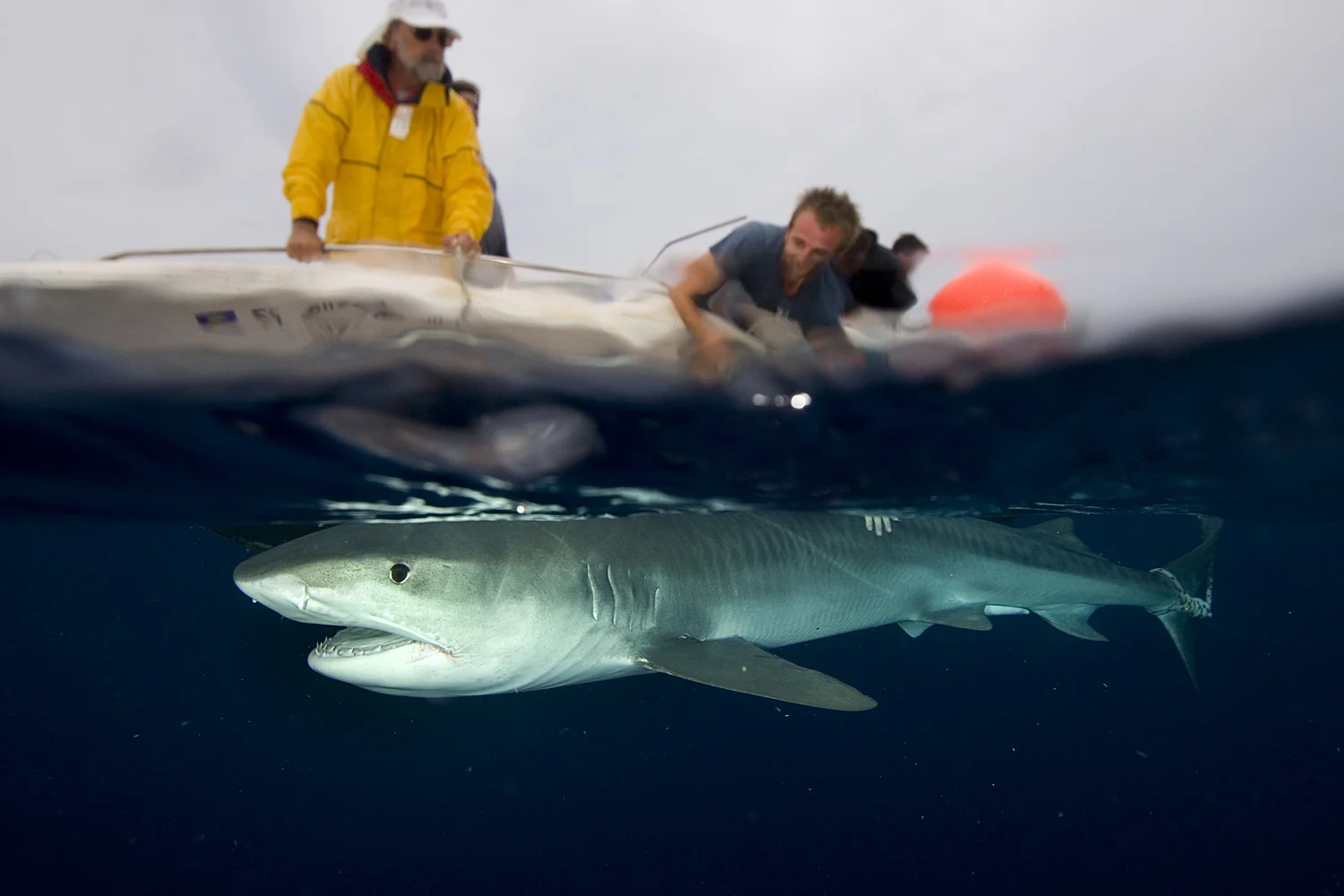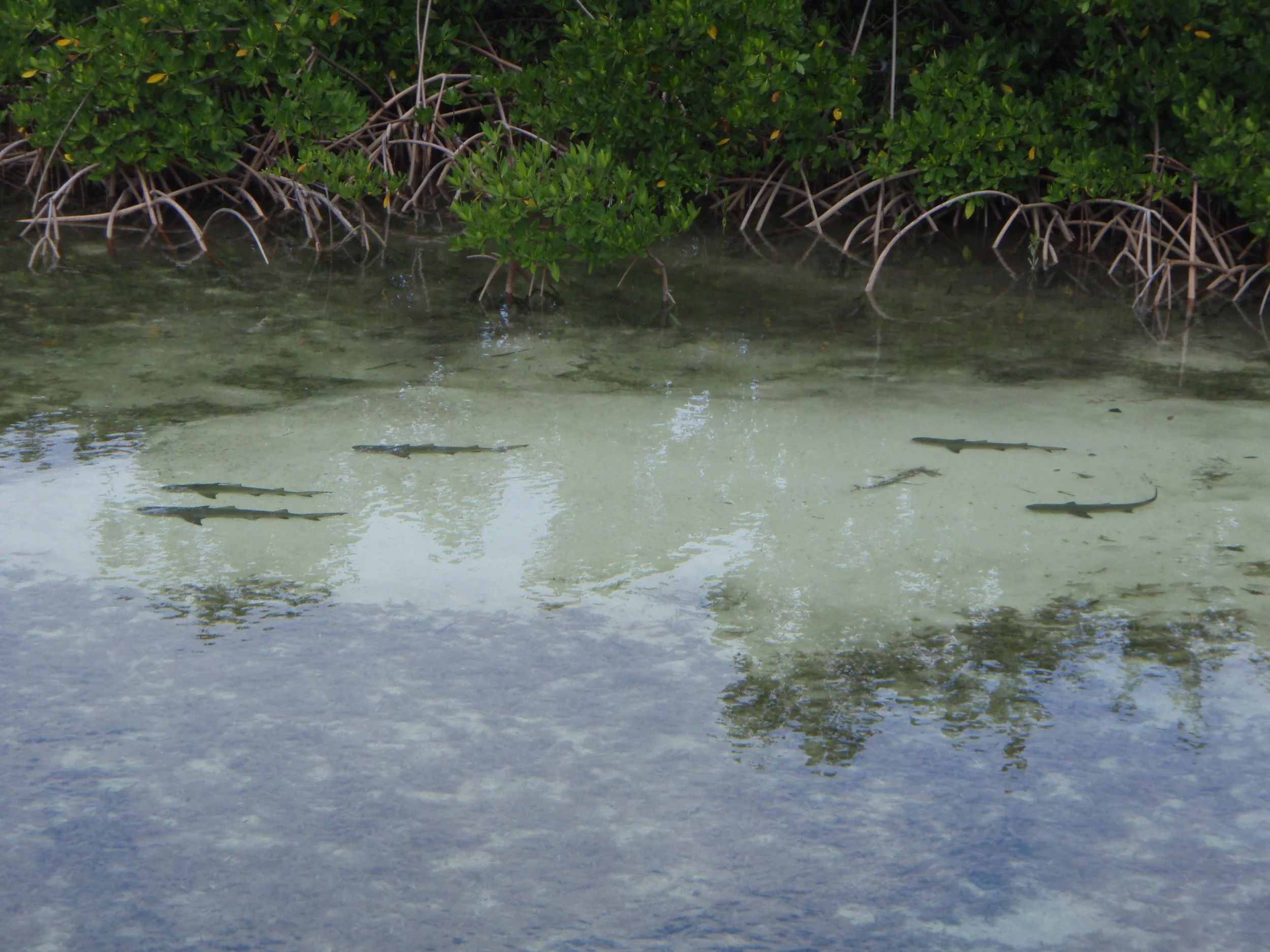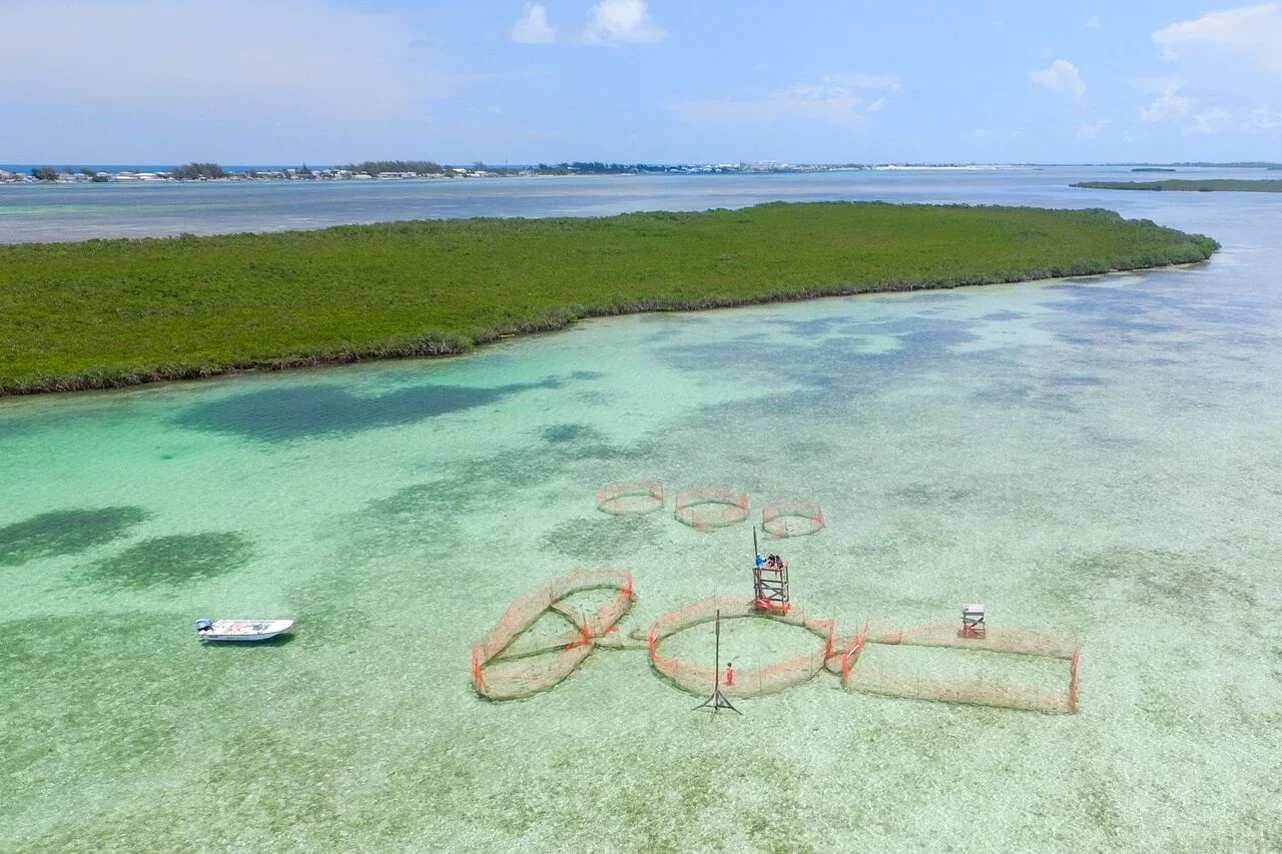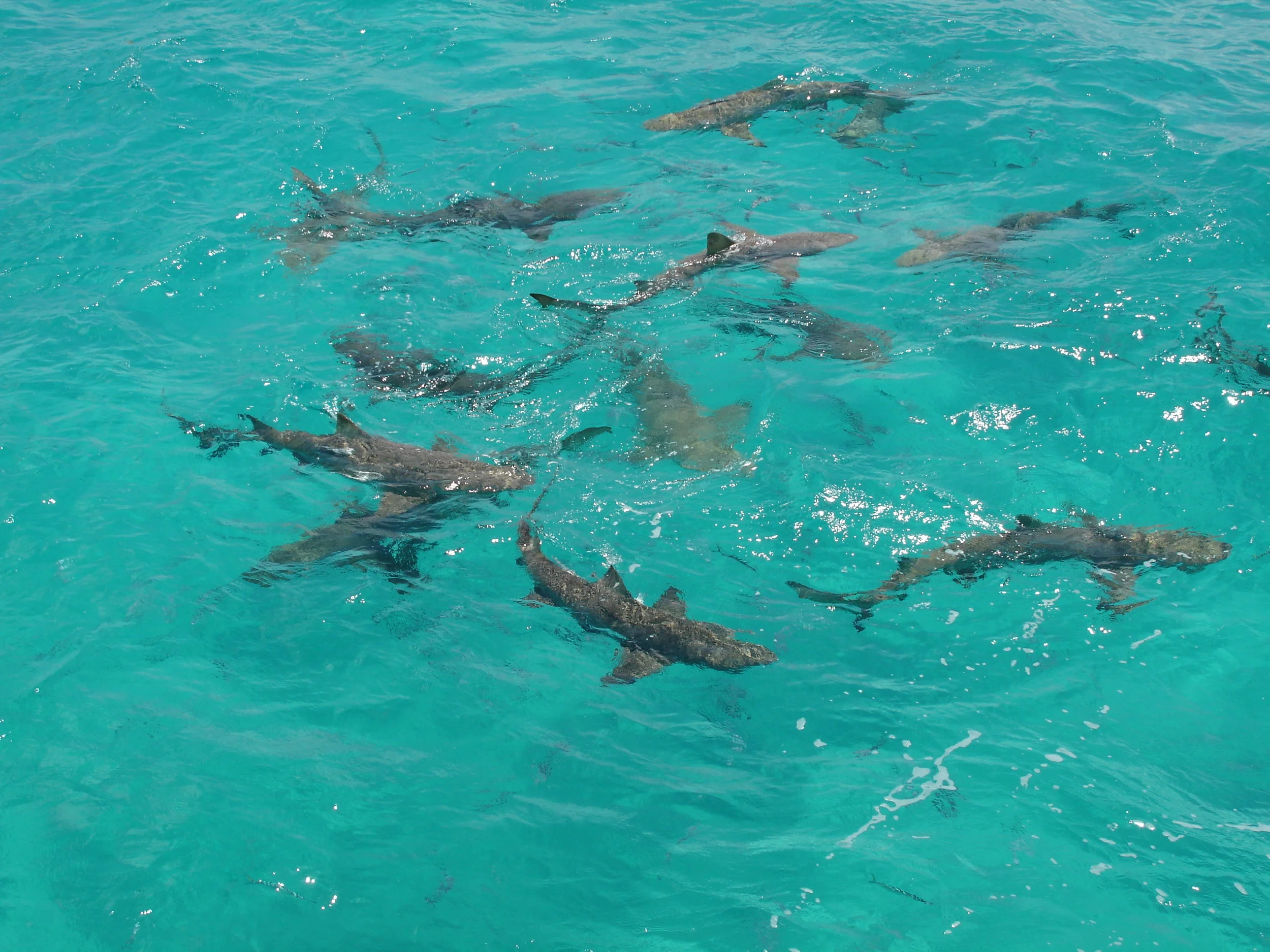Tristan has always had a fascination with understanding how, when and why animals form groups? Are groups formed because of a mutual attraction to a resource (e.g. food) or do some animals form groups because of a social attraction to one another. These questions formed the basis of his doctoral thesis on the social organisation of the lemon shark, Negaprion brevirostris and led him to want to understand more about the cognitive capacities of sharks. How quickly can sharks learn a feeding task? Can they learn it from each other? How long can they remember the task for? How do their learning capabilities match up to other animals?
Social behavior
Juvenile lemon sharks showed: 1) an active preference to be social, 2) a preference to socialize with other sharks of similar size, but not sex, 3) predictable use of a mangrove-fringed refuge site where they socialize over the high tide to avoid predators. Follow links above for peer-reviewed publications.
Personality
Juvenile lemon sharks were found to show consistency in two traits: 1) exploration of a novel environment and 2) how they socialize with other lemon sharks. For a review on the topic please read our book chapter. Follow links above for peer-reviewed publications.
Learning
1) Learning plays an important role in the behavior of sharks. 2) Juvenile lemon sharks can learn from each other. 3) Port Jackson sharks can learn a classical conditioning paradigm and remember it for at least 40 days. Follow links above for peer-reviewed publications.



